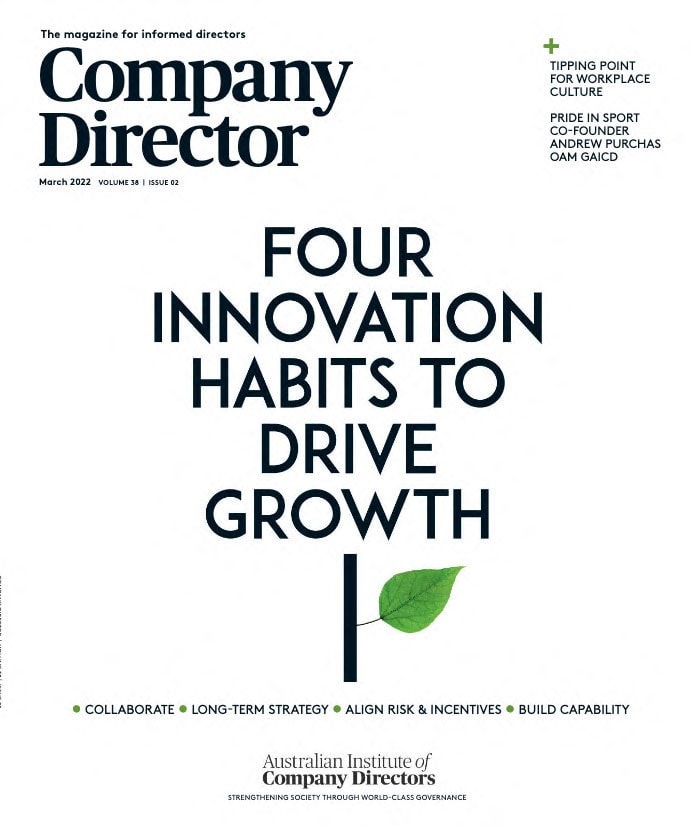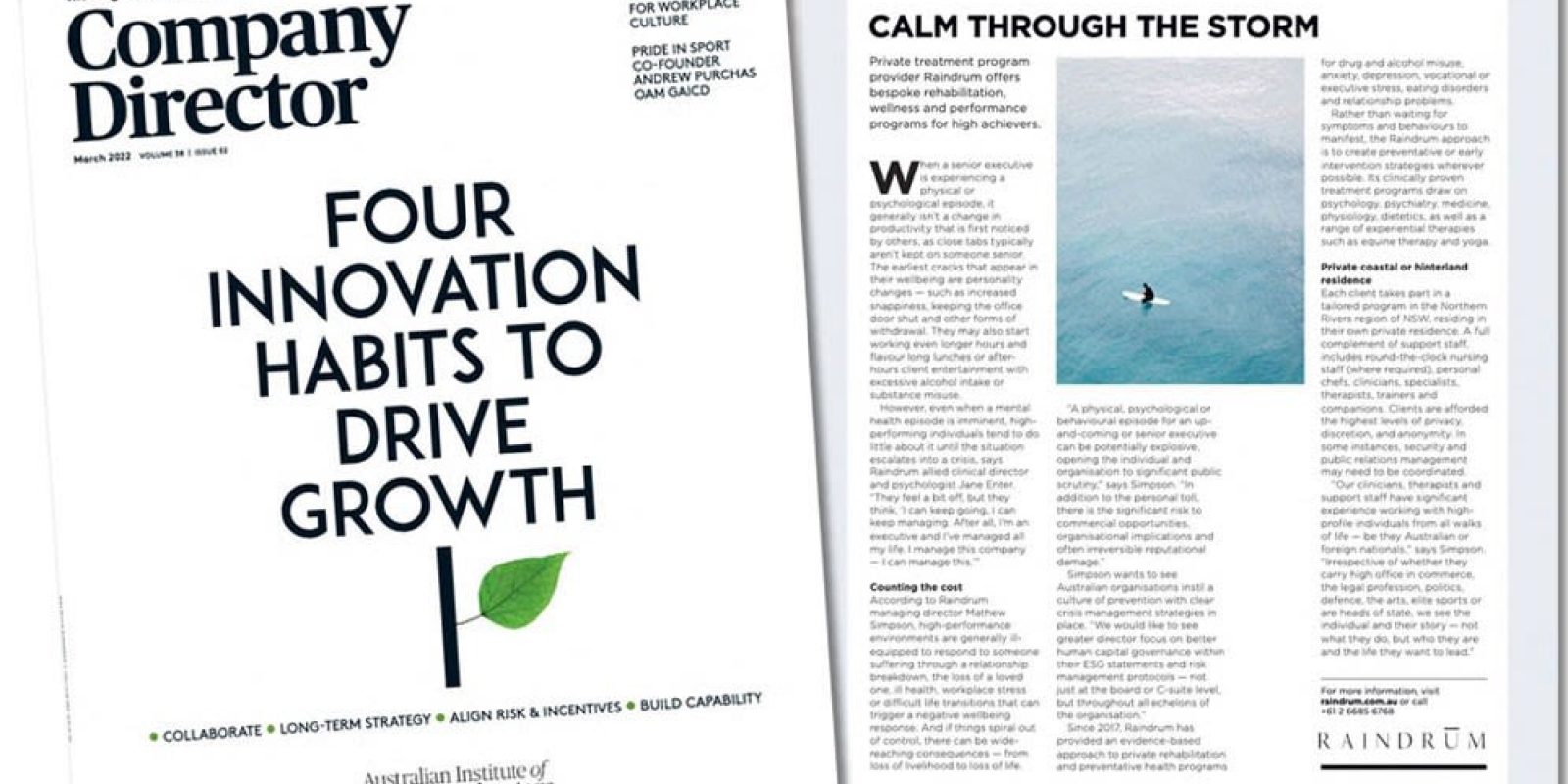When a senior executive is experiencing a physical or psychological episode, it generally isn’t a change in productivity that is first noticed by others, as close tabs typically aren’t kept on someone senior.
The earliest cracks that appear in their wellbeing are personality changes — such as increased snappiness, keeping the office door shut and other forms of withdrawal. They may also start working even longer hours and flavour long lunches or afterhours client entertainment with excessive alcohol intake or substance misuse.
However, even when a mental health episode is imminent, high performing individuals tend to do little about it until the situation escalates into a crisis, say Raindrum clinical director and psychologist Jane Enter.
“They feel a bit off, but they think, ‘I can keep going, I can keep managing. After all, I’m an executive and I’ve managed all my life. I manage this company — I can manage this.’”
Counting the cost
According to Raindrum managing director Mathew Simpson, high-performance environments are generally ill-equipped to respond to someone suffering through a relationship breakdown, the loss of a loved one, ill health, workplace stress or difficult life transitions that can trigger a negative wellbeing response. And if things spiral out of control, there can be wide reaching consequences — from loss of livelihood to loss of life.
“A physical, psychological or behavioural episode for an up-and-coming or senior executive can be potentially explosive, opening the individual and organisation to significant public scrutiny,” says Simpson. “In addition to the personal toll, there is the significant risk to commercial opportunities, organisational implications and often irreversible reputational damage.”
Simpson wants to see Australian organisations instil a culture of prevention with clear crisis management strategies in place. “We would like to see greater director focus on better human capital governance within their ESG statements and risk management protocols — not just at the board or C-suite level, but throughout all echelons of the organisation.”
Since 2017, Raindrum has provided an evidence-based approach to private rehabilitation and preventative health programs for drug and alcohol misuse, anxiety, depression, vocational or executive stress, eating disorders and relationship problems.
Rather than waiting for symptoms and behaviours to manifest, the Raindrum approach is to create preventative or early intervention strategies wherever possible. Its clinically proven treatment programs draw on psychology, psychiatry, medicine, physiology, dietetics, as well as a range of experiential therapies such as equine therapy and yoga.
Private coastal or hinterland residence
Each client takes part in a tailored program in the Northern Rivers region of NSW, residing in their own private residence. A full complement of support staff, includes round-the-clock nursing staff (where required), personal chefs, clinicians, specialists, therapists, trainers and companions.
Clients are afforded the highest levels of privacy, discretion, and anonymity. In some instances, security and public relations management may need to be coordinated.
“Our clinicians, therapists and support staff have significant experience working with high-profile individuals from all walks of life — be they Australian or foreign nationals,”
says Simpson.
“Irrespective of whether they carry high office in commerce, the legal profession, politics, defence, the arts, elite sports or are heads of state, we see the individual and their story — not what they do, but who they are and the life they want to lead.”




